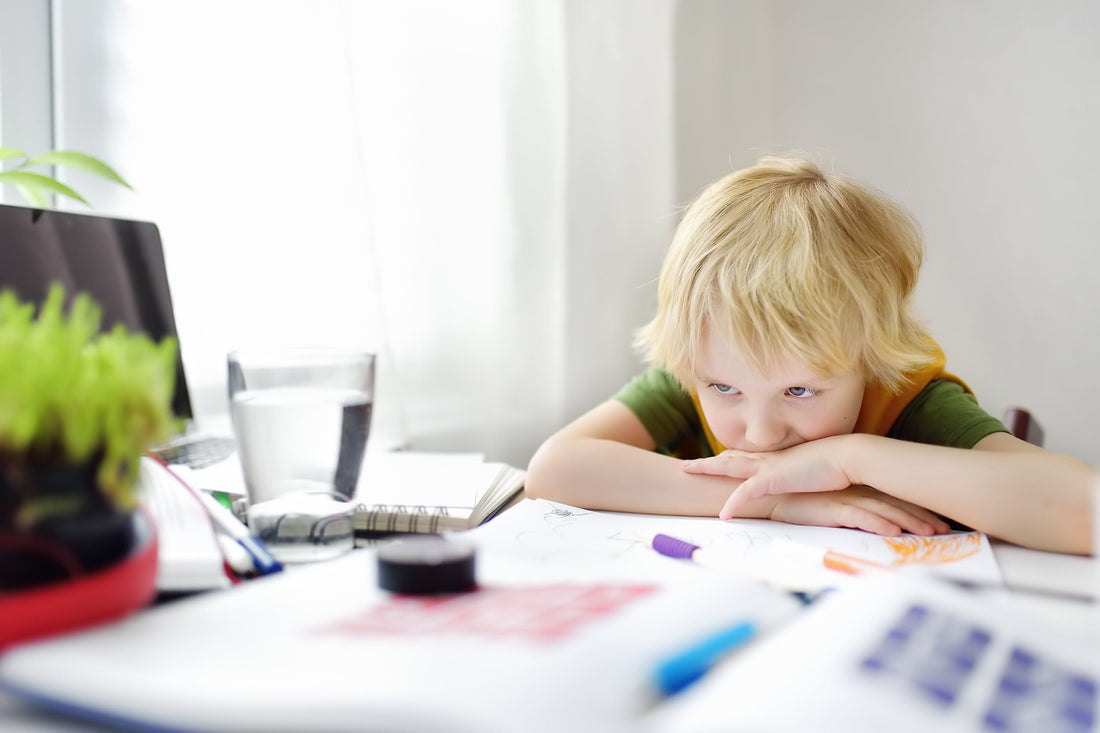If you suspect your child has ADHD or they have recently received an ADHD diagnosis, there’s a chance they may also have another mental health disorder. Studies show that up to 30 percent of children and up to 53 percent of adults with ADHD may also suffer from anxiety. By exploring the correlation between these two disorders and identifying overlapping symptoms, you will be more equipped to implement a plan to help your child deal with both. To begin, let’s explore what ADHD is as well as the difference between anxiety and ADHD.
Anxiety vs. ADHD in a Child: What's the Difference?
If your anxious child seems preoccupied or unable to focus, don’t be too quick to assume they have ADHD. Oftentimes, children with anxiety may seem miles away from reality, but they are only distracted by their worried thoughts. On the other hand, kids with ADHD are inattentive because of differences in the brain that control focus. They struggle with executive functions that help us stay organized, plan, follow a routine, and manage time. Facing these struggles can be stressful for children with ADHD, thus leading to anxiety.
The Connection Between ADHD & Anxiety
Some parents find it difficult to distinguish an anxiety disorder from ADHD because their symptoms may overlap. Is the restless tapping of your child’s foot an indication that they are anxious or biologically averse to focusing? Both anxiety and ADHD can also lead to insomnia because worries and obsessions can make it difficult to wind down. ADHD and anxiety disorders may share the following common symptoms:
- Difficulty concentrating or paying attention
- Restlessness and inability to relax
- Fidgeting
- Trouble following instructions
- Irritability
- Insomnia
- Withdrawing from people and/or activities
Ready to try Brillia?

When Anxiety Looks Like ADHD
Oftentimes, children with anxiety can be misdiagnosed with ADHD, or vice versa because of the similarities in symptoms. While anxious kids may seem distracted to the point of having an attention disorder, they might simply be preoccupied with their anxious thoughts and fears. Anxious children might also fidget because of their nervous energy, while kids with ADHD will fidget because of hyperactivity. Kids with anxiety may also struggle with perfectionism, leading them to complete their schoolwork slowly or miss assignments, while kids with ADHD work slowly because they find it difficult to remain on task.
Can ADHD Lead to Anxiety?
In the same way that kids with ADHD struggle with their executive functions, they also have trouble managing their emotions, including stress. A child with ADHD may become so emotional in response to stress that they have more trouble thinking clearly and effectively coping. Feeling powerless in the face of stress can cause a child with ADHD to become anxious. Research shows that there appears to be an age-related increase in the prevalence of comorbid anxiety. In one study of adults whose ADHD persisted from childhood into adulthood, researchers found that more than 40 percent of men and more than 50 percent of women with ADHD had multiple anxiety disorders.
Signs and symptoms of co-existing anxiety and ADHD in children:
- Fools around too much in class
- Seems argumentative or irritable
- Lies about schoolwork or other tasks that haven’t been met
- Withdraws from people or situations
- Plays video games, uses tablet, or watches TV nonstop
While it’s always wise to seek the advice of a medical professional if you fear your child is struggling with ADHD, or an anxiety disorder, there are a number of natural remedies available that can treat both. Brillia is a non-prescription, homeopathic anxiety medication for ADHD and anxiety that helps reduce stress, hyperactivity and irritability to improve focus, attention, and emotional regulation. Though anxiety may be a persistent reality for kids with ADHD, finding the right support is a powerful first step to helping them thrive again.







